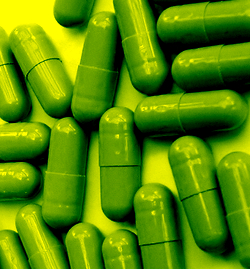Poo transplants tested
 Poo transplants have been shown to be successful in the treatment of ulcerative colitis.
Poo transplants have been shown to be successful in the treatment of ulcerative colitis.
A new randomised, double-blind study - published in the journal JAMA - involved 73 adults with mild to moderate active ulcerative colitis, an inflammatory bowel disease which effects the lining of the large intestine and rectum causing symptoms including pain, bloody stools and an increased risk of colon cancer.
Patients received either pooled poo transplants (‘faecal microbiota transplantation’ or FMT) from donor stool that had been anaerobically processed, or their own stool as placebo via colonoscopy followed by two enemas.
Researchers found a short duration of low intensity FMT using donor stool could induce remission in ulcerative colitis, with a 32 per cent rate of remission compared to 9 per cent with placebo.
This is a similar treatment result to the best currently available therapies.
Many of the currently available therapies for ulcerative colitis improve the disease by suppressing the immune system which can lead to potential side effects like infection or malignancy.
“The most important difference in this trial compared to previous studies is the use of anaerobic (oxygen-free) stool processing,” says study leader Dr Sam Costello.
“Many gut bacteria die with exposure to oxygen and we know that with anaerobic stool processing a large number of donor bacteria survive so that they can be administered to the patient.
“We believe that this may be the reason that we had a good therapeutic effect with only a small number of treatments.”
An agreement has already been reached with UK company Microbiotica to commercialise the development of a microbial therapeutic from the study.
“Our long-term aim is to develop rationally designed microbial therapies that can replace FMT,’’ says Dr Costello.
“These will have bacteria in a pill that can carry out the therapeutic effect without the need to take whole faeces.
“This is obviously a better and less smelly option.”







 Print
Print